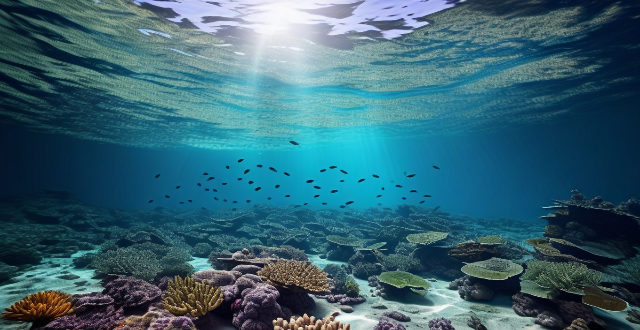Global warming, primarily caused by human activities, significantly impacts ecosystems and species diversity. These effects include habitat loss, altered species interactions, the spread of invasive species, disease proliferation, ocean acidification, melting permafrost, changes in fire regimes, water stress, sea level rise, coral bleaching, increased extinction risk, shifting ranges, population declines, adaptation challenges, loss of genetic diversity, behavioral changes, phenological shifts, reproductive challenges, physiological stress, and disrupted mutualisms. Addressing these issues requires immediate action to reduce greenhouse gas emissions and adapt to the changing climate.

Impacts of Global Warming on Ecosystems and Species Diversity
Global warming, a long-term increase in Earth's average surface temperature, primarily caused by human activities such as burning fossil fuels and deforestation, has significant impacts on ecosystems and species diversity. These impacts are wide-ranging and complex, affecting both the natural world and human societies in various ways.
Changes in Ecosystems
1. Habitat Loss: As temperatures rise, some habitats become unsuitable for certain species, leading to their migration or extinction. This can disrupt entire ecosystems that rely on those species for food or other resources.
2. Altered Species Interactions: Global warming can change the timing of seasonal events like flowering, migration, and reproduction, which can affect the interactions between different species within an ecosystem.
3. Invasive Species: Warmer temperatures can allow non-native species to thrive in new environments, often outcompeting native species and reducing biodiversity.
4. Disease Spread: Warmer climates can expand the range of disease-carrying organisms like mosquitoes and ticks, posing threats to wildlife and humans alike.
5. Ocean Acidification: Increased levels of carbon dioxide in the atmosphere dissolve into seawater, making it more acidic. This harms coral reefs and other marine ecosystems, as well as the many species that depend on them.
6. Melting Permafrost: The thawing of permafrost releases large amounts of methane, a potent greenhouse gas, further exacerbating global warming. It also destroys habitats that have been frozen for thousands of years.
7. Fire Regimes: Higher temperatures and altered precipitation patterns increase the risk of wildfires, which can devastate entire ecosystems and release large amounts of carbon stored in trees and soil back into the atmosphere.
8. Water Stress: Global warming leads to changes in precipitation patterns, causing droughts in some regions and floods in others. Both extremes can severely damage ecosystems and reduce biodiversity.
9. Sea Level Rise: Melting ice caps and glaciers contribute to rising sea levels, which threaten coastal ecosystems such as mangrove forests and salt marshes.
10. Coral Bleaching: Warmer ocean temperatures cause coral bleaching, where coral expels its symbiotic algae due to stress. This process weakens coral reefs and reduces their ability to support diverse marine life.
Effects on Species Diversity
1. Extinction Risk: Many species face increased risk of extinction due to habitat loss, competition from invasive species, and other factors exacerbated by global warming.
2. Shifting Ranges: As temperatures change, species may move to cooler areas or higher altitudes to find suitable conditions for survival. This can lead to local extinctions in some areas and new populations in others.
3. Population Declines: Some species may see declines in population size due to changes in their environment that make it harder for them to find food or reproduce successfully.
4. Adaptation Challenges: While some species may be able to adapt to changing conditions over time, rapid rates of global warming may outpace their ability to do so effectively.
5. Genetic Diversity Loss: Smaller populations resulting from global warming pressures can lead to reduced genetic diversity within species, making them more vulnerable to diseases and environmental changes.
6. Behavioral Changes: Animals may alter their behavior in response to changing temperatures, such as migrating earlier or changing their feeding habits, which can have cascading effects on ecosystem dynamics.
7. Phenological Shifts: Changes in the timing of seasonal activities like flowering and bird migration can affect pollination success and predator-prey relationships, potentially disrupting entire food chains.
8. Reproductive Challenges: Warmer temperatures can impact the reproductive cycles of many species, leading to mismatches between when offspring are born/hatched and when there is sufficient food available for them to survive.
9. Physiological Stress: Rising temperatures can cause physiological stress in animals, especially ectothermic creatures like reptiles and amphibians, whose body temperatures are directly influenced by their environment.
10. Disrupted Mutualisms: Mutualistic relationships between species, such as pollination or seed dispersal, can be disrupted if global warming affects one partner more than the other, leading to imbalances in these crucial ecological interactions.
In conclusion, global warming poses profound challenges for both ecosystems and the diverse array of species they support. Addressing these impacts requires urgent action to mitigate greenhouse gas emissions and adapt to the changing climate.